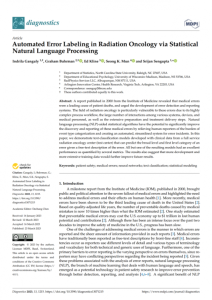This article published by the Institute for Healthcare Improvement1 describes a roadmap of how health care organizations should prepare and respond to serious clinical adverse events. The article stresses the important role of transparency in managing events. It encourages institutions to admit to mistakes and be forthright to patients, families, and fellow workers. An important goal of creating improvement means learning from your mistakes and meeting long-term objectives to prevent recurrence of a similar event.2
The article stresses that institutions must first openly and publicly acknowledge errors in order to investigate what truly occurred. Communication must be open, frank, and timely. A corrective action plan must be formulated to avoid a future, similar error from occurring. The article further describes what key factors separate organizations from success or failure when a crisis emerges.3
The article includes three detailed tools as appendices for guiding institutions in dealing with serious clinical adverse events: (1) checklist, (2) work plan, and (3) disclosure culture assessment tool.4
1,2,3,4Conway J, Federico F, Stewart K, Campbell MJ. Respectful Management of Serious Clinical Adverse Events (Second Edition). IHI Innovation Series white paper. Cambridge, Massachusetts: Institute for Healthcare Improvement; 2011. (Available on www.IHI.org)
Source: http://www.ihi.org






